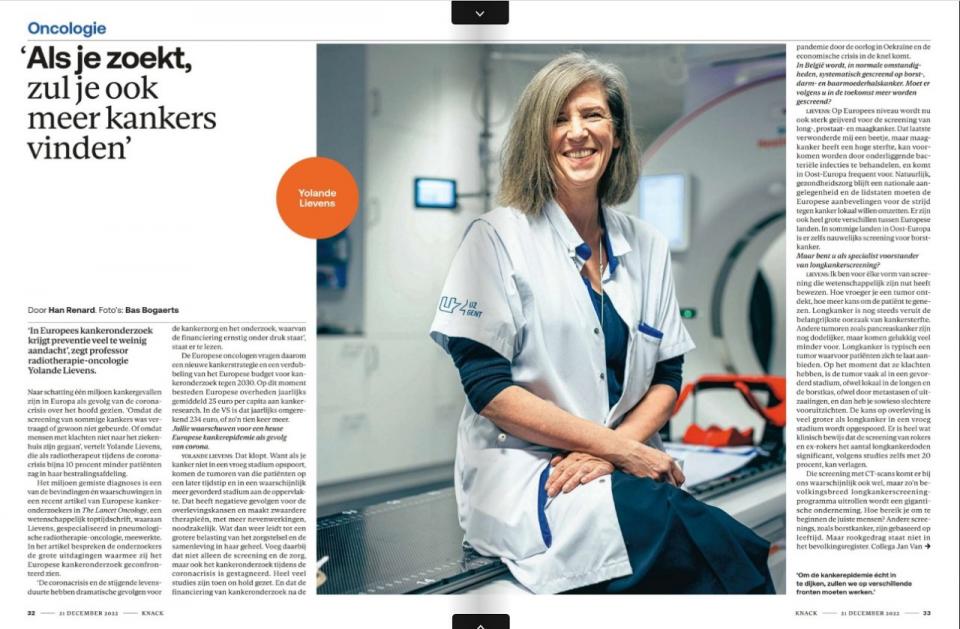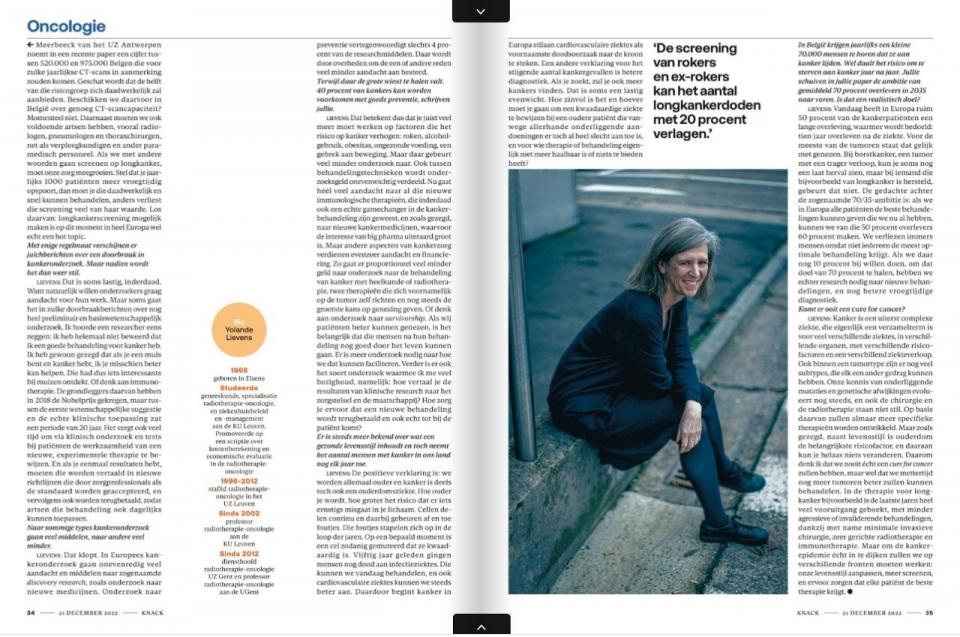European Groundshot—addressing Europe’s cancer research challenges
In a comprehensive report, European cancer experts including CRIG group leader Prof. Yolande Lievens describe the current state of cancer research in Europe, and together with health care experts and representatives of patient organizations, provide recommendations for the future. They warn for a European cancer epidemic in the next decade if weaknesses in Europe's health care systems and cancer research are not urgently addressed.
With an estimated number of one million cancer diagnoses missed across Europe in the past two years, it is feared that the impact of the COVID-19 pandemic will set back European cancer outcomes by nearly a decade. In addition, the European oncology landscape and research is further undermined by the war in Ukraine and the Brexit.
By analyzing a large amount of accurate and detailed data, the report sheds light on the current status of cancer research in Europe, highlights current and future challenges, and identifies gaps in the research landscape. The observed gaps should be addressed by prioritizing disadvantaged cancer research areas, including prevention and early diagnosis as well as life with and after cancer, radiotherapy and surgery, healthcare research and implementation science. In addition to major geographical differences between Eastern and Western Europe, a significant gender disparity is also seen in European cancer research. The data further show that cancer patients treated in research-based hospitals have better survival, making cancer research crucial to offering higher quality, more affordable and equitable cancer care in all European countries.
The Lancet Oncology Commission is therefore calling for a doubling of the European cancer research budget, and for the rollout of a broad cancer research agenda, which will enable optimal prevention and early diagnosis, as well as ensure the best treatment, survival and quality of life to current and future patients in the context of stable and sustainable health care systems. To achieve this, the report formulates 12 action points for European researchers, funders and governments.
Read more:
Recently, Prof. Lievens was interviewed about this report by the journal 'Knack'. You can read this interview (in Dutch) below or via this link.

